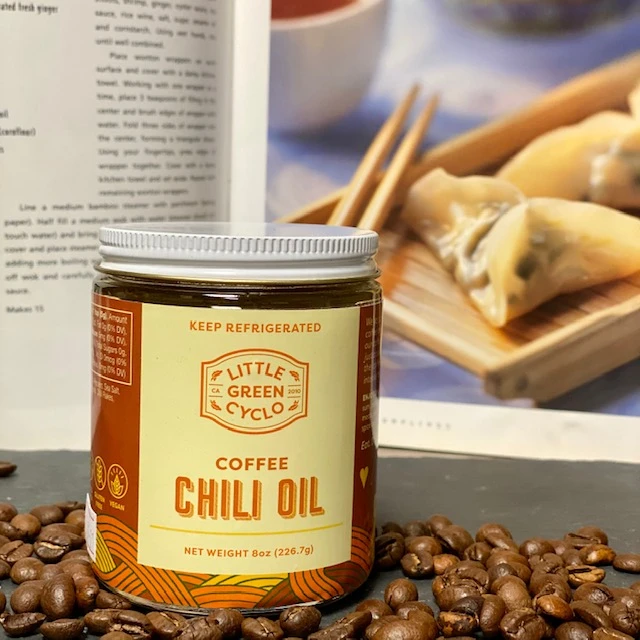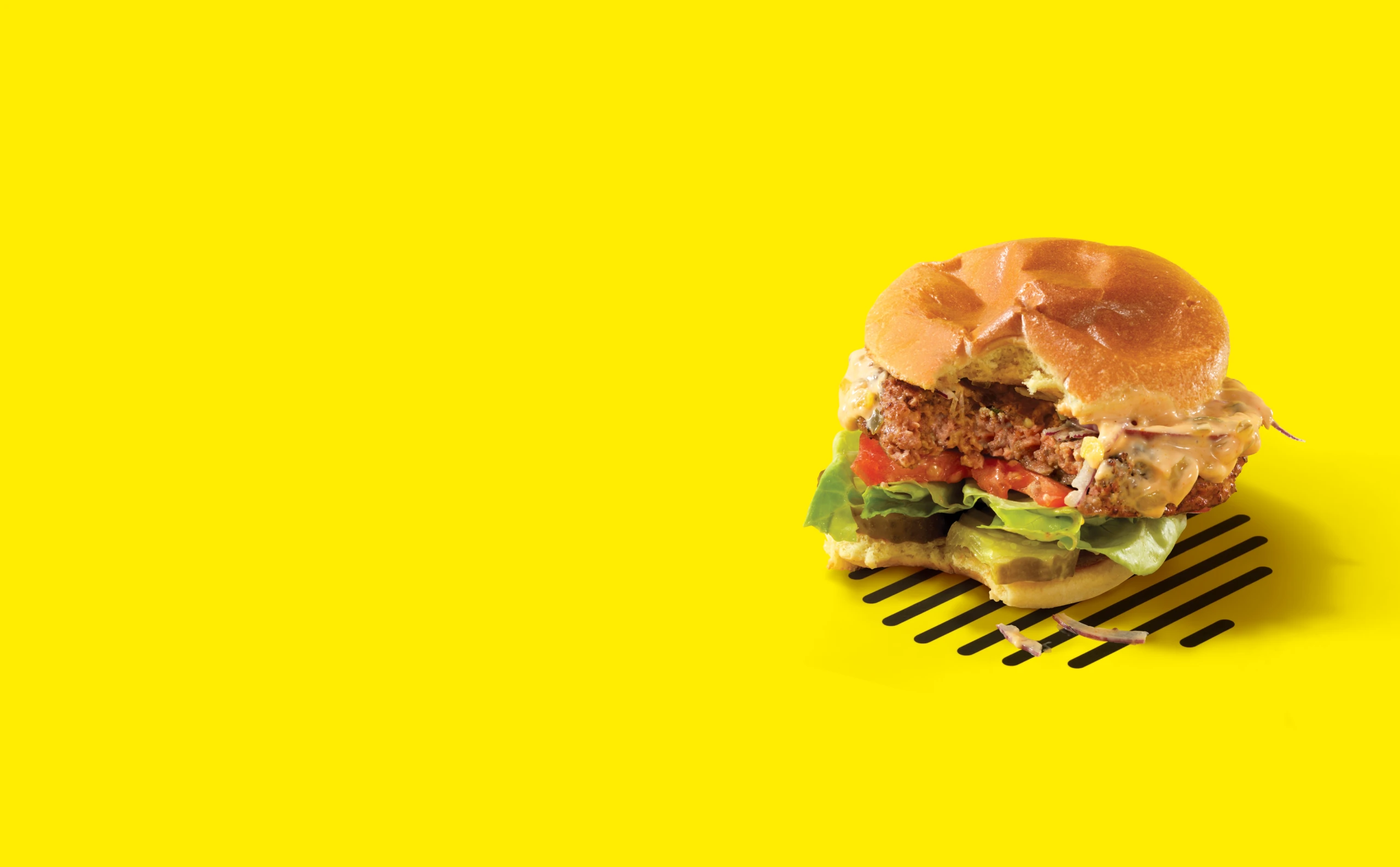Meet Little Green Cyclo: Vietnamese Food Truck Owners Turned Award-winning Food and Beverage Business Leaders
Discover how Little Green Cyclo is bringing Vietnamese flavors to the menu in the most delicious and sustainable way possible

You may not know Monica Wong & Chef Quynh Nguyen yet, but we promise you’ll want to. This dynamic duo co-founded Little Green Cyclo(opens in a new tab), the Bay Area’s first gourmet Vietnamese food truck, and has grown the brand into a food and business empire featuring a restaurant, catering business, grab n’ go products and an e-commerce site. With the addition of an award-winning line of ready to drink coffee products(opens in a new tab), this unstoppable force is taking over the food and beverage scene in the West Coast and shows no signs of slowing down any time soon.
In celebration of Asian American & Pacific Islander Heritage (AAPI) Month, we’re showcasing how these amazing entrepreneurs grew a massively successful business while staying true to their roots.
IF: You both have very interesting professional backgrounds, what made you want to start a food business?
Monica: I was born in Hong Kong but grew up in the Boston area. During those years, my time was spent working in the family business -- Downtown Boston’s first Chinese restaurant. After working every role imaginable (except cooking!), I knew that the food industry wasn’t for me because of how hard my parents worked. I spent 20 years in finance before leaving to start my own business. My friends and family thought I was crazy, but I couldn't get the idea of owning my own business out of my head. That’s when I moved to the Bay Area and met Chef Quynh, who owned a Cajun restaurant in San Jose. It was important to me to have a chef as a business partner, and together we established Little Green Cyclo.
Quynh: I grew up in Vietnam and played professional ping pong for the national team. That experience allowed me to travel all over the country and explore delicious food from different regions. When I moved to the United States as a teenager, I often found that Vietnamese restaurants used MSG and that it was difficult to know about the sourcing of their ingredients. When we launched Little Green Cyclo, we made it our mission to source from local and organic suppliers and to build healthy menu items from scratch.

Photo Credit: Little Green Cyclo
IF: You started with a food truck and have expanded your business to include packaged drinks, which made you the first Vietnamese brand ever to win the 2021 SOFI™ New Product Award. How did you do that?
Q: We knew we wanted to be known for the freshest and healthiest ingredients, so a food truck allowed us to travel to our customers and cook for them on the spot. We got instant feedback regarding the quality and flavor of our dishes, which was really important for us because we only serve food that we would be proud to serve to our family and friends. Social media platforms like Twitter also allowed us to spread the word and build up our clientele. We've now grown our business to include 3 food trucks, a commercial kitchen, an e-commerce site, a restaurant and a line of coffee CPG products.
M: The addition of grab ‘n go coffee drinks allowed us to build our brand because we can reach new customers. Quynh helped launch that line by reaching out to family farms in Vietnam that practiced sustainable & organic methods of farming. We then partnered with a local Bay Area roaster to blend and roast these 100% hand picked beans for our ready-to-drink Vietnamese coffee. We were honored to be the 1st Vietnamese brand to ever receive SFA’s sofi™ New Product Award in the Tea & Coffee RTD category, and you can find our four cà phê sữa đá, coffee spice rubs, coffee chili oil and coffee hot sauce in over 60 locations throughout the Bay Area. Our goal is to showcase the versatility of Vietnamese coffee beans in drinks and food.

Photo Credit: Little Green Cyclo
IF: Why is sustainability such a priority for your business?
M: Sustainability is literally in our name. We chose ‘Green’ because we care about the environment, from compostable packaging to making sure we recycle as much as we can. We also always use the best ingredients, like Impossible™ meat made from plants, organic sprouted tofu and air-chilled chicken. When we learned about traditional chicken cleaning practices, which involve dunking chickens into a bleach-water solution to kill the bacteria before packaging, we knew we couldn’t serve that on our menu.
From day one, we’ve been very transparent about our sourcing. We highlight the vendors we work with by listing them on our website, menus and posting about them on the outside of our food trucks. It's important to us that everyone knows we work with local businesses to provide the freshest food possible. Our customer base really appreciates that.
Sustainability is at the heart of our mission as a company because we believe businesses have a responsibility to do better.

Image Source: LittleGreenCyclo.com(opens in a new tab)
IF: How do Impossible™ products fit into that strategy?
M: They align perfectly with our menu and our customers love that we offer Impossible™ dishes. Quynh loves using Impossible™ Burger in a variety of cooking styles to bring out rich flavors that pair perfectly with authentic Southeast Asian dishes, like our Impossible™ Banh Mi, Impossible™ Fried Rice and Impossible™ Milk Bread Sandwiches.
Q: We’re catering a Bat Mitzvah, and our client doesn’t want seafood or pork so she’s really excited to give her guests Impossible products in addition to chicken. We also get vegan wedding requests and we’re so excited because we know we can create a variety of delicious items with Impossible products.
IF: What struggles have you experienced as AAPI female business owners?
M: I came from a finance background so I was fortunate to be able to self fund. Applying for loans can be very difficult when you start a business and we didn’t have to go through that. In addition, the barriers to entry for food trucks are lower, so that gives more entrepreneurs from all backgrounds a chance to start their business.
In my experience, the Bay Area has been very accepting. Growing up in Boston wasn’t easy -- I was constantly taunted and the recipient of mean comments and gestures. People would come into our family restaurant just to be mean and say ‘We don’t want your food’ or ‘You don’t belong here’. I moved to California so I could live in a more accepting environment, but have also experienced targeted hate. Things got significantly worse during the pandemic and it was very scary to be honest, but we remind ourselves that not everyone feels that way. I’ve learned that those people represent a small minority and if you want to change people’s minds, start with their stomachs. Once they give your food a chance, you see positive results & how a good meal brings people together.
I’ve learned that if you want to change people’s minds, start with their stomachs. Good food brings people together.

IF: It sounds like optimism and resilience are core qualities for being successful food entrepreneurs. Any others?
Q: You have to have a passion for food. Working 12 hour days can be physically and mentally taxing. You can’t go into this thinking you’re going to hire a manager and sit back, you have to be involved in every step of the process. Now we don’t work as much in the food trucks, but in the first 5 years we worked double shifts daily. I would prep 120 pounds of noodles every day, then go back to work after we closed to develop new recipes! Creativity is important as well -- I’ve created over 300 specials throughout the years because I get bored easily and love to develop new items that people can enjoy.
